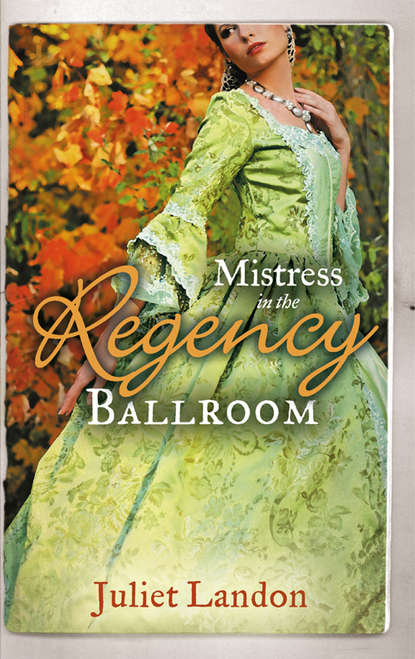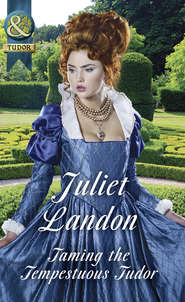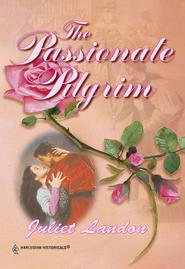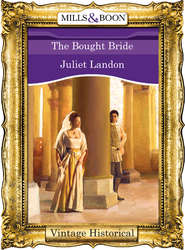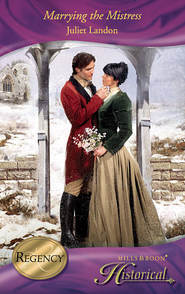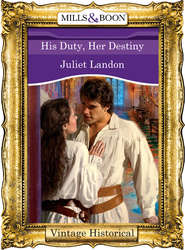По всем вопросам обращайтесь на: info@litportal.ru
(©) 2003-2024.
✖
Mistress in the Regency Ballroom: The Rake's Unconventional Mistress / Marrying the Mistress
Настройки чтения
Размер шрифта
Высота строк
Поля
He had not attached any importance to finding Lord Rayne there at the palace, or to the fact that he had been helping Letitia to find her way about. It was, he agreed, a devilish place in which to lose one’s bearings. And it was not Letitia who asked him about Lord Rayne’s exact function as a captain of the 10th Light Dragoons, but Mrs Quayle and Miss Gaddestone, who were still chuckling like girls about the poor coachman’s top hat.
‘He trains cavalry for Marquess Wellington,’ Mr Waverley told them. ‘Not just the 10th Light Dragoons, the Regent’s Own, but other regiments, too. He’s done his share of fighting, but he sold out once and was re-commissioned. There’s no one better than Rayne for preparing young lads for battle. He lives with his brother and sister-in-law up at Sheen Court for some of the time.’
Mrs Quayle of Number 22 knew his brother. ‘That’s Lord Elyot,’ she said to Miss Gaddestone, holding her broken parasol across her knees. ‘Lady Elyot’s a lovely lady. She’s on the Richmond Vestry Committee, in charge of the strays that wander into the town.’
‘Stray dogs?’
‘Women, dear,’said Mrs Quayle, pursing her lips, implying a certain condition. ‘Lord Elyot is Assistant Master of Horse, you know. the Royal Stud is there at Hampton Court, so he and his brother work hand in glove with the King’s horses. Breeding,’ she whispered, raising an eyebrow and leaning towards her friend. ‘Horse mad, that family.’She might as well have said ‘breeding mad’.
Letitia made no contribution to the conversation, nagged by the thought that it was her own untypical defensiveness that had brought about that outrageous scene in the little room, not in defence of her charges, which would have been understandable, but in defence of her own position as their guardian. Had it been anyone else but Lord Rayne who had appeared, she would probably have said very little except to admit their mistake. But at first sight of him, it was as if all the hostility in her being had rushed to the fore, to pay him back for the perceived slight she herself had provoked yesterday. It was all so farcical, when she cared not a whit what the dreadful man thought of her.
Yet she cared very much that she had been shown such shocking disrespect, kissed by one of the most notorious rake-hells in town, not because she was what he wanted, but because he suspected that was what would upset her most, a blue-stocking, worth in his eyes only the novelty value. So much for leaving the protection of her family. So much for independence.
After dinner she pleaded tiredness, leaving her two companions, Mrs Quayle and Miss Gaddestone, to their own company. This was the time she usually reserved for writing her thoughts while she was unlikely to be disturbed.
Tonight, the pen refused to speak for her.
For the best part of an hour she struggled for a way to translate her confusion into words, to describe the physical sensations and to explain her emotions, but this time not even anger would untangle itself sufficiently to make the slightest sense, and eventually she closed the book in weary surrender. Perhaps tomorrow she would be able to see it better from a distance.
That, she told herself, was half the problem, for while she could see perfectly to read and write, to sew and draw, she needed her spectacles to be able to see anything clearly at a distance, and only amongst friends would she have been seen wearing them. If only she’d had the courage to wear them that afternoon, she might have been able to anticipate the trouble before it happened. Locking away her notebook, she reached for her reticule and took out the leatherand silver-banded case that held her plain steel-rimmed eyeglasses.
Coldly, they clamped each side of her face, but instantly each dark recess of the room came to life with detail, the faint rose pattern on the bed-curtains, the reflections on glass and metal, the sharp moulding around the ceiling. The lamp flame was a little miracle.
Her maid, Orla, entered with a tray, smiling at the bespectacled figure that stared about her in wonderment. ‘The day will come, ma’am,’ she said, ‘when every other lady will be wearing those.’
‘In public? Never.’
‘In public, ma’am. You mark my words.’
Letitia was silent. Her father had refused to wear his except in private. Letitia had been with him when he approached the fence and ditch all wrong, and she had never hunted since, knowing that it could have been her. He had died in her arms.
Her inability to put down in words what she had gained by the experience of that disturbing day kept sleep at a distance. Her success as a writer of novels depended to a large extent on her sincere and often vivid accounts of passionate relationships, which, for the most part, were the result of an active imagination combined with brief and surreptitious observations. It was not a satisfactory method for any writer of integrity, even though her first novel to be published, The Infidel, had been a runaway success. The second, recently published, seemed just as likely to please, if her pupils’ eagerness was anything to go by.
Her notebook was her lifeline, a personal record, added to daily, where not only her own thoughts and experiences were logged, but other people’s, too, including those of her pupils, relatives and friends: their mannerisms, figures of speech, and the tales they recounted. Descriptions of places were important, too, which had been one of her reasons for wanting to visit Hampton Court Palace that day. She needed the details, the colours and scale, the sounds and patterns. She had returned with an indigestible muddle of emotions, too contradictory to string together in words.
But therein lay another problem—that of writing about relationships when she had only her own to draw on. If she wished to continue giving her readers the kind of detail they craved, it surely made some sense for her to gain a deeper understanding, a more informed perception of the human heart in all its seasons. Some had dubbed her novel ‘racy’, even ‘scandalous’, because she had followed her characters into places where other writers had not, but as long as she remained anonymous, she was perfectly safe from the disapprobation of those who felt shamed by such personal matters. How could any young woman enter matrimony, she wondered, without knowing the first thing about the state of mind, and body, of the man she would be tied to for the rest of her life? If her own pupils read her books, then so much the better for them. No one would ever suspect her, Lady Boyce’s eccentric daughter, of writing about people in love.
Later that night, however, long after Orla had plaited her tresses into a silver pigtail as thick as a wrist, the notebook was brought out for a second airing to receive a scattering of adjectives, which, while they added colour to a new kind of scene, had little to do with the emotion that simmered behind it. Nevertheless, as she climbed back into bed, she could not resist taking a look at two faint bluish marks on her upper arm. ‘Lout!’ she whispered. ‘Ill-mannered boor!’ He would have laughed about her with his comrades, for certain, marking up a score for the superior male sex.
At that moment, the thirty-three-year-old lout in question lay sprawled across his bed staring up at the dim pool of light made by a single oil lamp on the canopy. He had scarcely moved for the last hour, but now he rolled off to the edge and sat there with his dressing gown gaping, his hands dangling in repose between lean thighs.
Feeling unsociable and critical of his behaviour that afternoon, he had left the company of his brother and sister-in-law, unable to convince himself that Miss Lettie Boyce deserved all she got. Nonplussed by his uncharacteristic discourtesy, he wondered what devilry had made him follow her, insisting on playing out an incident that would have been better put behind them. A bevy of silly females and a deaf coachman were not, after all, the worst thing that could have happened to disrupt his exercise. To make matters worse, the woman he had shamed was the elder sister of the twins he was currently escorting, the sister they had fondly told him about.
He had formed a picture of a dowd, a frumpish bookworm securely on the shelf. He had caught a glimpse of her yesterday when she had clearly formed her own picture of him and decided he was not worth her civility. So he had not suffered any guilt at dismissing her as a sharp-tongued hen-of-the-game, even without a closer look. But today he’d seen her on horseback, superb, stylish and proud, the only one of the women to keep control of her mount. Later, he had come across her in that grubby little room where her dignity had been no less impressive, defying him, refusing to be intimidated, spitting fire from her remarkable eyes and rousing in him the kind of aggression he kept only for male opponents with whom he fenced and boxed. Never before had he vented it on a woman.
She was a beauty, too, once he’d got close enough to see: tall and athletic, and undeserving of the ‘schoolma’am’ he’d taunted her with. Now he would have to find a way to put things right, if only for the sisters’ sakes, his first try having been justifiably rejected. He sighed and stood up, dropping his gown to the floor. The thought of seeing the bubbly twins again did not, for once, give him any particular pleasure.
His chance came quite unexpectedly at church next morning when the two Misses Binney asked him if he could find the time, just once, to attend their supper party in the company of his brother and sister-in-law. ‘It’s several months since you’ve been,’ Miss Phoebe Binney complained, touching his arm with the tip of one gloved finger. ‘You brought Mr Brummell with you last time, remember. Such an interesting man, and such good company.’
‘Dear Miss Phoebe,’ said Rayne, taking her hand between his own, ‘I remember it well, and so does he. But I usually return to barracks on Sunday evening ready for work in the morning.’ From the corner of his eye he could see the tall plume of dark blue feathers on a velvet hat moving towards the west door, and he knew that, if he stayed talking to Miss Phoebe, his chance would be lost.
‘Oh, dear. Then you won’t be able to get to know our latest addition to Richmond’s talent, will you?’ Miss Phoebe’s eyes searched, pausing at the vicar’s latest captive. ‘Miss Boyce, you know. Bart Waverley has promised to bring her with him again. Such a bright star. Her father was Sir Leo Boyce, the architect of those magnificent…Well, of course. Your parents are neighbours, are they not?’
But Rayne’s refusal had already begun to veer like a weathervane towards acceptance. ‘I can return to barracks early tomorrow, Miss Phoebe. Thank you, I look forward to this evening.’ Surrounded by several other females, the plume was fast disappearing down the path towards the lychgate, leaving Rayne in little doubt about the reason for the haste.
The terraced three-storey building on Maids of Honour Row facing the Green was well known to the Richmond set as one of the most popular literary salons outside London, not only for its attraction to ‘blues and wits’, but as a place of political neutrality where complete freedom of speech was actively encouraged. The home of the two elderly Misses Binney, both of them highly intelligent and well educated, its guest lists were noted for assembling people of all ages and experiences, the only requirement being that their manners must be impeccable and that they must contribute to the evening with at least a modicum of cleverness. Needless to say, an invitation to one of their ‘supper parties’ was an honour few ever declined and, as the best society hostesses were celebrated for their brilliant repartee, the contribution of women to the discussions, whatever the subject, was treated with due seriousness.
When Rayne arrived with Lord and Lady Elyot, the drawing room already buzzed with conversation, and the first notes of a song on the piano, followed by a voice, then laughter, made them smile even before the door closed behind them. Heads turned with greetings, absorbing them into the pool of black and grey, ivory and amber, the blue-white flash of diamonds and the wink of a quizzing-glass.
‘Ah, Rayne, old chap. Come over here and tell us about…’
Courteously, he nodded, but preferred to wait a while. This was not the kind of place to which he would normally have come to pursue a woman, nor was he quite sure why he’d accepted the invitation so optimistically when Miss Boyce was unlikely to give him the time of day, let alone engage him in conversation. She was not his type anyway; he preferred his women friends to be affable and accessible, not needing too much effort on his part and certainly not as enraged as she had been by his kiss, even if the reason behind it was controversial. Unsurprisingly, she was a complete innocent and more than likely to stay that way if she was as determined as she appeared to be to redirect her social life. A seminary, of all things. Why, with the blunt Sir Leo had left her in his will, she must be one of the best catches of the decade, but for her non-conformity.
‘Eccentricity is all the rage these days,’ murmured a sweet voice in his ear. ‘There are plenty of them about, if you think on it.’
Rayne smiled. ‘Amelie, my dear, what are you talking about?’
Slipping an arm through his, Lady Elyot squeezed gently. ‘You know well enough what I’m talking about, brother-in-law dearest. I’m talking about the one your eyes could not keep away from in church this morning. The one who sits over there in the corner talking to Miss Austen. It’s not like you to be so hesitant. Nor, come to think of it, was it like her to dash off without coming to speak to us. I don’t suppose she was the reason you changed your mind about delaying your return to Hampton Court, was she?’
He looked down at her, catching the teasing in the lustrous dark eyes, remembering the time, nine years ago, when he and his brother had first seen her in Rundell and Bridges choosing silverware, both of them wanting her, as most men did. Even after bearing three children, she was still a stunningly lovely woman, gentle and compassionate, whose love had tamed his brother’s wild heart as no other woman could have done. Rayne trusted her opinion as much as his brother’s.
‘Nonsense,’ he said with a sideways grin. ‘Whatever gave you that idea? You’ve met her then, have you?’
‘Well, of course I have, love. I was one of the first people she contacted about opening a seminary in Richmond when there are already six others, not to mention all the boys’ academies. As a member of the Vestry, I was probably in the best position to discuss the idea with her, and had she not proposed to make hers different from the others in many ways, I’d not have been so encouraging. Besides, I know her mother, as you do.’
‘What ways?’
‘Subjects about which young women of a marriageable age seem to know so little these days. The art of conversation, for one. That’s sadly neglected by so many mamas. She takes them on visits to places of interest, to art galleries and studios of the leading painters, visits to the House of Commons to hear debates, to the theatre and the royal palaces. She wants them to learn better riding and driving skills, too.You’d be surprised how many young women are unable to ride really well,’ she added, waving to a friend across the room.
‘No, I wouldn’t,’ he said.
‘I believe she has a lot to offer that others don’t. We have Kew just across the park and I’ll lay any odds that half her pupils’ parents have never been to see the gardens, let alone the succession houses. She intends to teach them how to keep household accounts, and to plant a herb garden, and to cook with them.’
‘To cook? What on earth for?’
‘Seton dear, you’re so old-fashioned. What do you expect a wife to do these days? Stand around like a gateau and simper?’
‘Gateaux don’t simper, dear Amelie. And I think it sounds like an expensive exercise, since you ask.’
‘Ah, but Miss Boyce is no fool. She knows one cannot start such a venture on a shoestring, but don’t be supposing her fees are anything like the usual. Nothing but the best for Miss Boyce’s pupils. She had the house extended and refurbished before she moved in, and her pupils are from Richmond’s best families. Colonel and Mrs Lindell’s daughter is one, the vicar’s eldest daughter is another, and Sir Mortimer Derwent’s girl, too. Oh, and Sapphire Melborough from up on the Hill.’
‘Mm…’ said Rayne. ‘Interesting. Quite a handful.’
Whether he meant the entire package or Sapphire Melborough alone, Lady Elyot did not ask, though she might have been able to guess. ‘With her connections,’ she said, ‘she’s had no problem attracting the right kind of client. How do you find Lady Boyce these days? Has she tried to interfere with your friendship with the her twin daughters yet?’
‘Not yet.’
‘She will.’





